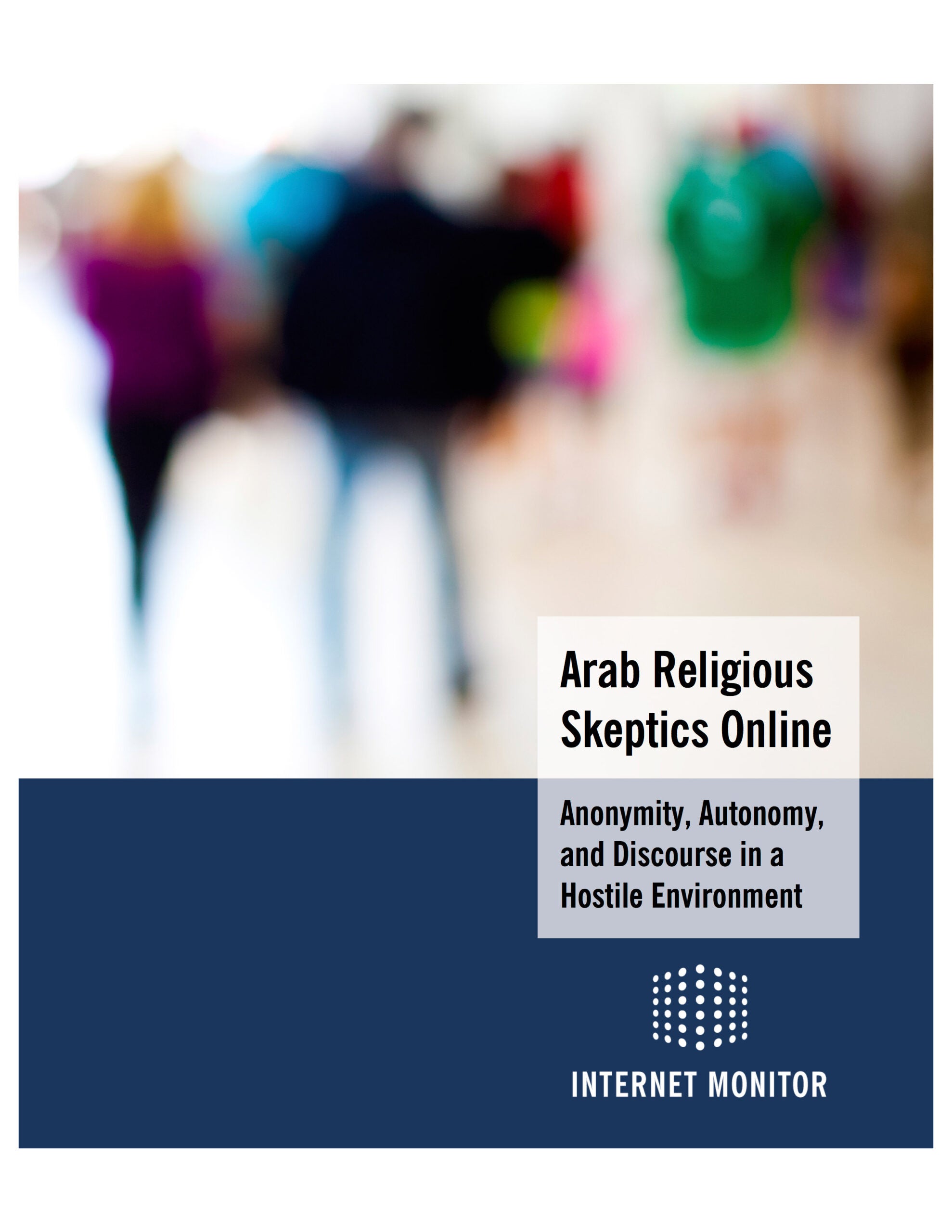A recent report published by the Berkman Center for Internet & Society’s Internet Monitor project examines the emergence of religious skeptics in Arab cyberspace.
The report, “Arab Religious Skeptics Online: Anonymity, Autonomy, and Discourse in a Hostile Environment,” authored by Helmi Noman, a research affiliate of the Berkman Center for Internet & Society, analyzes the content, discourse, and structure of three prominent Arab atheist web forums and examines the relationship between the networked information economy and religious skeptics.
The report is the sixth in a series of special reports by the Internet Monitor project that focus on key events and new developments in Internet freedom. The project also publishes an annual report each fall that provides expert analysis on the state of the global Internet.
According to Noman, the Arab atheist community is largely an online phenomenon, with limited visibility offline and with virtually no umbrella groups. It exists in unfriendly, if not hostile, political, social, religious, and legal environments.
A central question of the paper is whether the Internet enhances individual autonomy in matters of faith. Given that the Arab atheist community online is prevailingly anonymous, the paper assesses the potential and limitations of anonymous and pseudonymous speech online and the extent to which this facilitates or hinders sharing, debating, community building, and collective action.
Key observations include:
- The Arab atheist community online is largely flat and egalitarian. This structure enables the comfortable sharing, discussing, and consuming of highly sensitive content—a behavior highly problematic, if not impossible, offline in many Arab societies.
- The Arab atheist community online engages in a significant peer-produced media ecosystem, sharing and translating literary and video content outside of traditional markets and legal frameworks.
- The online Arab atheist community is robust, but isolated: only a small percentage of links to the forums come from mainstream Arabic sites, and counter-campaigns have attacked and shut down atheist web presences.
- Anonymity works as a tactical advantage for the Arab atheist community, helping members conceal their identities from exposure to religious, political, and social retaliation. Should the online atheist community become less anonymous in the future, this would likely signal more space and acceptance offline.
The full paper is available for download at SSRN: Arab Religious Skeptics Online.
Noman’s research focuses on the Internet, media and telecommunications laws, and issues surrounding filtering and censorship in the Middle East and North Africa region. He also explores the impact of information and communication technologies on the Arab information societies, Arabic web content, how the use of the Internet defies the social and political structures in the region, and the potential systemic changes cyberspace can bring to real space in the Arab region. His research projects include examining how politically and socially vulnerable communities in the Arab world use anonymous and pseudonymous speech online and mapping and exploring the structure and content of the Arab blogosphere and Twittersphere.
Internet Monitor, based at the Berkman Center for Internet & Society, is a research project to evaluate, describe, and summarize the means, mechanisms, and extent of Internet content controls and Internet activity around the world. The project compiles and curates data from multiple sources, including primary data collected by the Berkman Center and its partners, as well as relevant secondary data. The Internet Monitor platform is a freely available online fact base that gives policy makers, digital activists, researchers, and user communities an authoritative, independent, and multi-faceted set of quantitative data on the state of the global Internet. Internet Monitor also provides expert analysis on the state of the global Internet via a special report series and annual reports on notable events and trends in the digital space.
